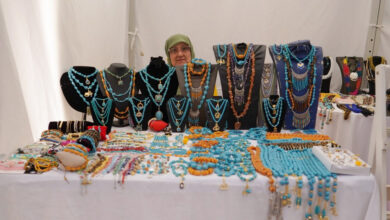Culture and Heritage
-
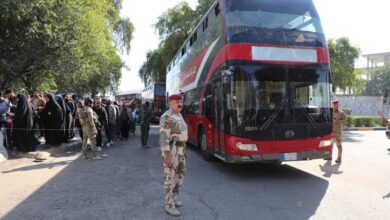
Heritage on Two Levels: Baghdad’s Double-Decker Buses
The Leyland double-decker bus has been a significant part of Baghdad’s public transportation system and heritage since their introduction in the 1950s. These iconic buses have stood as a testament to Baghdad’s unique character among Arab capitals. Known locally as ‘Al-Maslaha’ or ‘Al-Amanah’, names derived from the Baghdad Municipality, these…
Watch -

Discovering Iraq: Interview with Author Karen Dabrowska
In this interview, we delve into the fascinating journey of author Karen Dabrowska, whose passion for Iraq’s cultural heritage has led her to write multiple books on the subject, including the notable Iraq: Then & Now: A Guide to the Country and Its People. She recounts how her initial trip to…
Watch -
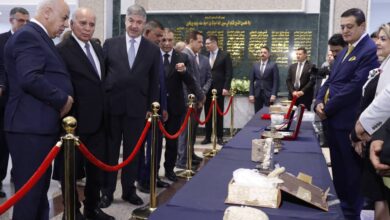
Iraq Retrieves 181 Smuggled Ancient Artifacts
Iraq recently celebrated the return of 181 smuggled archaeological artifacts in a significant ceremony held at the Iraqi Ministry of Foreign Affairs. The artifacts, which include a variety of historically significant pieces such as a bronze figure and ancient skeletal remains, were illegally taken from Iraq and recovered from locations…
Watch -

The History of Mesopotamia: Interview with Professor & Archaeologist Roger Matthews
In an exclusive interview, Professor Roger Matthews, of the Archaeology Department at the University of Reading, speaks about his research and archaeological findings surrounding the prehistory and early history of the Mesopotamian region. Given your extensive research on Mesopotamia, could you explain why this region is considered the ‘cradle of…
Watch -
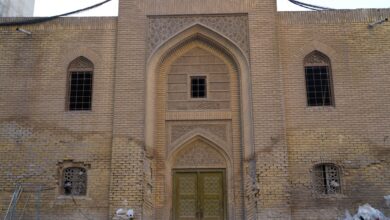
Baghdad Heritage Site: Khan Marjan
Khan Marjan, founded in 1358 by Wali Amin al-Din Mirjan, stands as one of Baghdad’s oldest khans, embodying a rich tradition of hospitality and commerce. Serving as a hub for social and economic activity, it provided a secure overnight stay for travelers crossing the region. This historic establishment not only…
Watch -
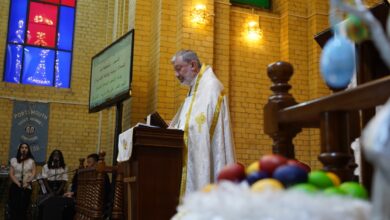
Easter Mass at St. George’s Episcopal Anglican Church in Baghdad
On Sunday 31st March, Iraqi Catholics and Protestants celebrated Easter Sunday, commemorating the resurrection (rising from the dead) of Jesus Christ. This was led up to by what Catholics/Protestants refer to as the ‘Holy Week’. It represents Jesus’ last days as well as his crucifixion, and these days are honoured…
Watch -
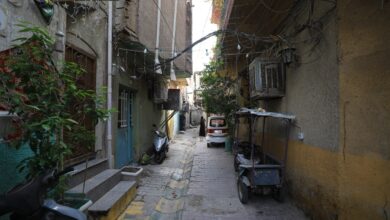
The Ancient Neighborhoods of Baghdad
Al-Fadl neighborhood is named after a mosque established near the tomb of Fadl ibn Sahl ibn Bishr al-Shafi’i, a preacher from Baghdad who passed away in the year 548 AH. Al-Fadl is considered to be one of the neighborhoods of ancient Baghdad. It is located on the side of Al-Rusafa,…
Watch -
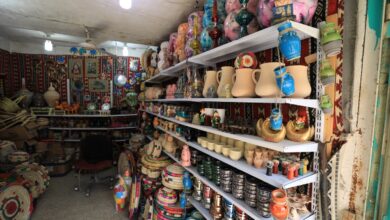
Sustaining Tradition: Pottery and Reed Crafts in Modern Homes
For thousands of years, clay utensils for cooking and storing food have been an integral part of households in Sumer, the earliest known civilisation in what is now southern Iraq. Pottery holds a profound significance in Iraqi culture, where ancient civilisations relied on clay for constructing homes, crafting cooking tools,…
Watch -
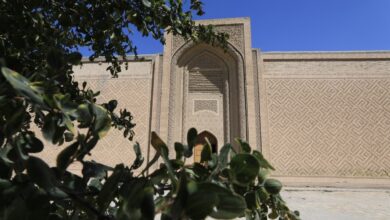
Abbasid Palace: Baghdad’s Majestic Legacy
The Abbasid Palace is recognised to be one of the most important heritage sites in Baghdad, located to the left bank of the Tigris River. It was built approximately between 1179 to 1225 AD by the Caliph Al-Nasser, which is towards the end of the Abbasid Dynasty. Entirely built with…
Watch

